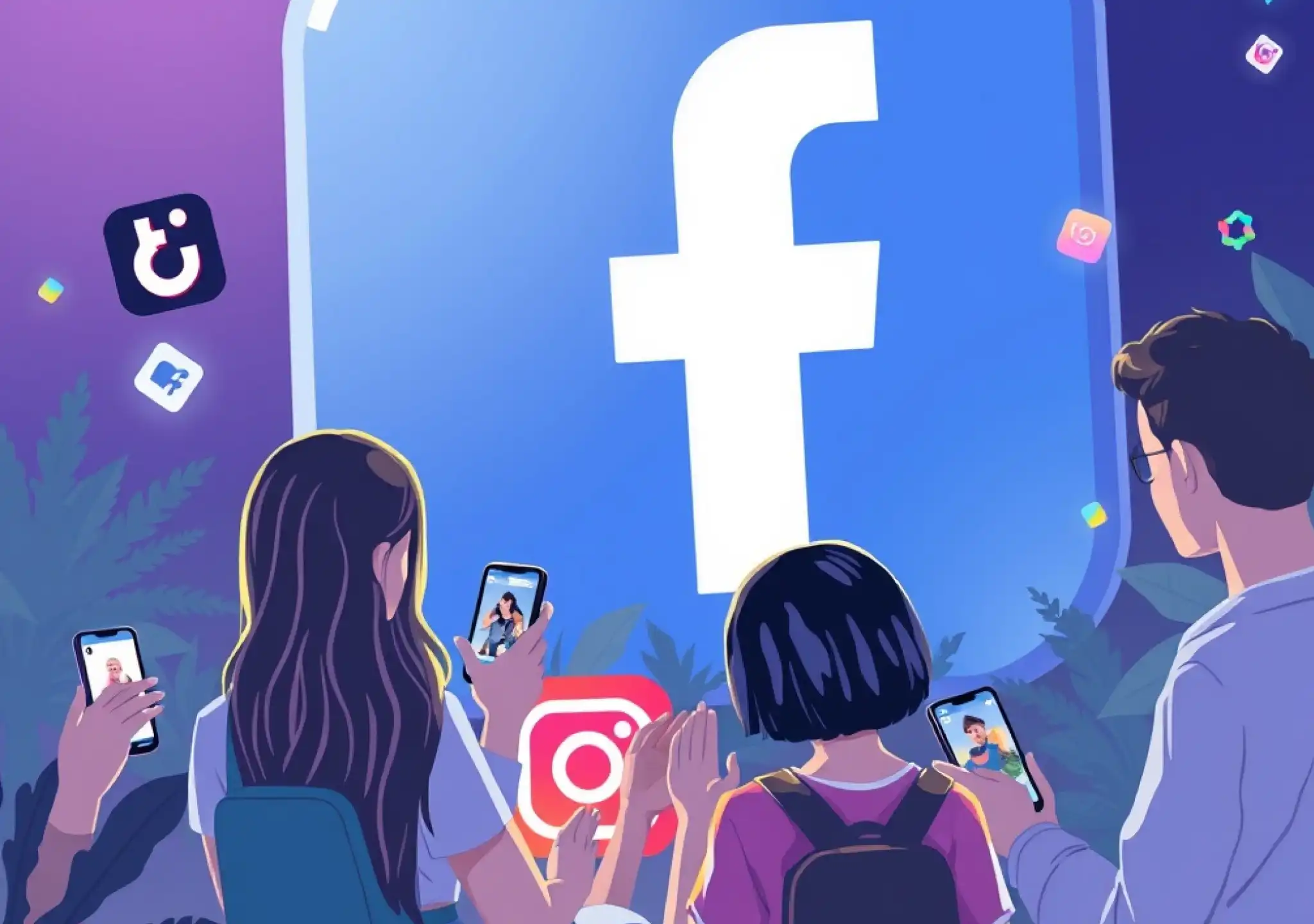As the platform marks 20 years, it faces challenges in staying relevant with younger generations
Facebook wants the world to know it’s still alive and thriving. With three billion users globally—more than a third of the world’s population—the platform continues to dominate in numbers. But that dominance masks a deeper issue: its waning influence among younger users, who increasingly see it as outdated.
Despite being part of the same parent company, Meta, Facebook isn’t keeping up with the younger audiences flocking to platforms like TikTok and Instagram. Many young adults, like 24-year-old Devin Walsh, say they haven’t logged in for years. Walsh spends more time on Instagram and TikTok, praising the latter’s algorithm for constantly surprising her with new content. To her, Facebook feels “cheugy”—a Gen Z term for something uncool—and associated with older generations posting family photos or political rants.
As Facebook nears its 20th anniversary, it faces a unique dilemma: maintaining its massive user base while regaining cultural relevance. Once the go-to site for social connection, Facebook now risks becoming as utilitarian—and uninspiring—as email. Though two billion users still check in daily, the platform must work harder to stay meaningful in the lives of younger users who now prefer trendier platforms.
The Golden Era and Its Fade
For many millennials, Facebook was a central part of growing up. Launched in 2004 by Mark Zuckerberg, it quickly overtook competitors like MySpace, offering a cleaner, more user-friendly experience. At its peak, Facebook was a cultural phenomenon, featured in Hollywood films and late-night comedy routines. By 2015, it had hit one billion daily users. But today, those same users are aging, and Facebook is struggling to hold the attention of newer generations.
Moira Gaynor, 28, remembers how stressful MySpace was to navigate compared to Facebook. She credits Facebook’s success to its simplicity and seamless design, which felt revolutionary at the time. But with time, the platform has lost its cool factor. New platforms like TikTok now dominate the social media scene, especially with younger audiences.
Debra Aho Williamson, an analyst with Insider Intelligence who has tracked Facebook since its inception, agrees that while younger users are dropping off, Facebook isn’t disappearing anytime soon. “The fact that we’re still talking about Facebook 20 years later shows how powerful it has been,” she noted. But even AOL was once a tech giant before it became synonymous with outdated tech.
Adapting for the Future
Tom Alison, head of Facebook, says the company is actively working to attract younger users again. In an interview with The Associated Press, he said the entire product line is being reimagined to meet the needs of young adults. He calls the new direction the “era of social discovery,” aiming to help users connect with friends, new people, and others they should know.
Artificial intelligence is a cornerstone of this strategy. Much like TikTok’s successful algorithm, Facebook is using AI to recommend content users didn’t even know they wanted. Features like Reels—short-form videos similar to TikTok—are central to this push. Facebook is also focusing on private messaging, allowing users to share and discuss Reels seamlessly within the app.
Alison believes this approach aligns with what young users want. “We’re seeing more people wanting to share and discuss Reels,” he said. “So we’re integrating messaging back into the app to make Facebook a more interactive and discovery-driven space.”
Still, Facebook doesn’t publicly share its user demographic data, making it hard to track how effective these changes are. However, external researchers report a continued drop in younger users. And while Facebook has eased efforts to attract teens—partly due to mental health concerns—it’s clear the platform faces an uphill battle.
Looking Ahead
“Young people shape the future of communication,” Williamson emphasized. She explained that the same trend that launched Facebook is now favoring other platforms. Insider Intelligence estimates that by 2026, only 28 percent of U.S. Facebook users will be between 18 and 34 years old, compared to 46 percent for TikTok and 42 percent for Instagram. Among teens, the numbers are even lower.
Some believe Facebook should stop chasing its former identity. Gaynor, who now works in government in San Diego, says the platform should pivot entirely. “They’ve lost the social edge,” she said. “But if they want to become the new Yellow Pages, why not?”
She still finds value in features like Facebook Marketplace, which she used to furnish her new home. For many users, Facebook may no longer be the social hub it once was—but it still offers practical tools worth keeping around.

